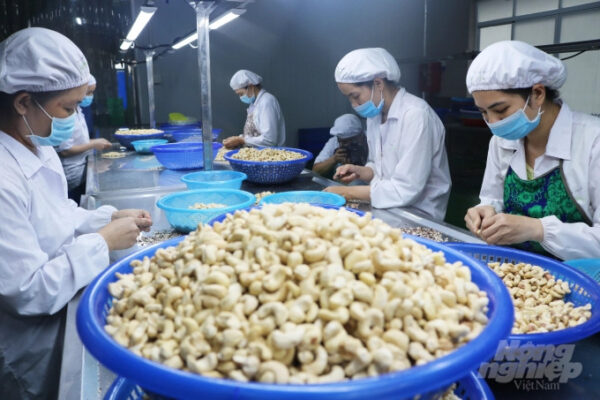Vietnam’s agri-food industry is ranked second in Southeast Asia in terms of economic recovery expectations, according to a recent report of Food Industry Asia.
The report, entitled The Economic Impact of the Agri-Food Sector in South East Asia, aims to better understand the challenges and economic impact of the agri-food sector faced in 2020.
The report highlighted that the agri-food sector’s role in driving Southeast Asia’s economic recovery, creating employment and putting food on the table at stable prices, is pivotal.
According to the Economic Recovery Matrix report, Vietnam ranked 2nd out of 10 countries in Southeast Asia on the expectation of economic recovery in the agri-food sector with a score of 6.6 / 10, only after Singapore.This position is obtained partly due to Vietnam’s efforts in preventing the spread of the COVID-19 pandemic in the early days, thereby minimizing economic losses.

The country’s agri-food sector remains resilient despite the impact of the pandemic, reaching a growth rate of 4% by 2020, equivalent to contributing an additional US$3.7 billion to the national GDP.
Prior to the pandemic, Vietnam’s agri-food sector had significantly contributed to the national economy.
Specifically, the agri-food sector contributed $ 86.4 billion to GDP in 2019. Currently, the sector provides 27.5 million jobs, accounting for half of the national workforce, and is also the most important source of creating jobs in the national economy.
In addition, the sector has contributed a total of $13.2 billion to Vietnam’s tax income.
This result is mainly derived from Vietnam’s agricultural production, which contributes more than $55.3 billion to GDP, accounting for nearly two thirds of the income of the entire agri-food industry.
However, in recent years, the sector has also begun to diversify in the context of both food and beverage production and distribution achieving double-digit growth from 2015 to 2019.
According to Mary Tarnowka, Executive Director of the American Chamber of Commerce in Vietnam (AmCham Vietnam), Vietnam’s agri-food sector has shown great resilience to the challenges of pandemic.
However, the spread of the Covid-19 pandemic, financial and supply-demand risks may disrupt Vietnam’s growth, she added.
“The effects of the pandemic have been felt widely and deeply across all sectors, including agri-food, but as a significant pillar of our national economy, the sector demonstrated its resilience by achieving robust growth throughout last year”, said Tarnowka.
“The crisis can be an opportunity for Vietnam’s agri-food sector to drive our economy to greater heights, promoting food security and sustainable growth, while continuing to support over half of our country’s entire workforce”.
“We should continue the diversification of the sector that we’ve seen pre-pandemic, where we deepen our capabilities in higher value-adding roles in ag-tech, manufacturing, and services,” she added.
Mr. Matt Kovac, Managing Director of FIA, said that it is necessary to understand the contexts of current and future risks to seize opportunities for Vietnam’s agri-food industry.
Kovac said, “The report highlighted a range of substantial short-term and long-term challenges facing the agri-food sector in Vietnam, and that it remains crucial for policymakers to recognise and work around these risks, given the scale of the sector’s contribution to Vietnam’s jobs and GDP. With strong headwinds projected for 2021, it is imperative for the Vietnamese government to remain mindful of this with any policy that could impact the industry.”
Echoing this, James Lambert, director of Economic Consulting Asia for Oxford Economics said, “As Vietnam looks to continue its trajectory of being one of the fastest growing economies in the world, it is important that policymakers provide the most conducive conditions for the agri-food industry to grow and thrive, and that any fiscal policy implemented is carefully planned, designed, and communicated. That will allow the industry to continue to provide the economic benefits it has delivered over recent decades.”

 Tiếng Việt
Tiếng Việt Indonesia
Indonesia